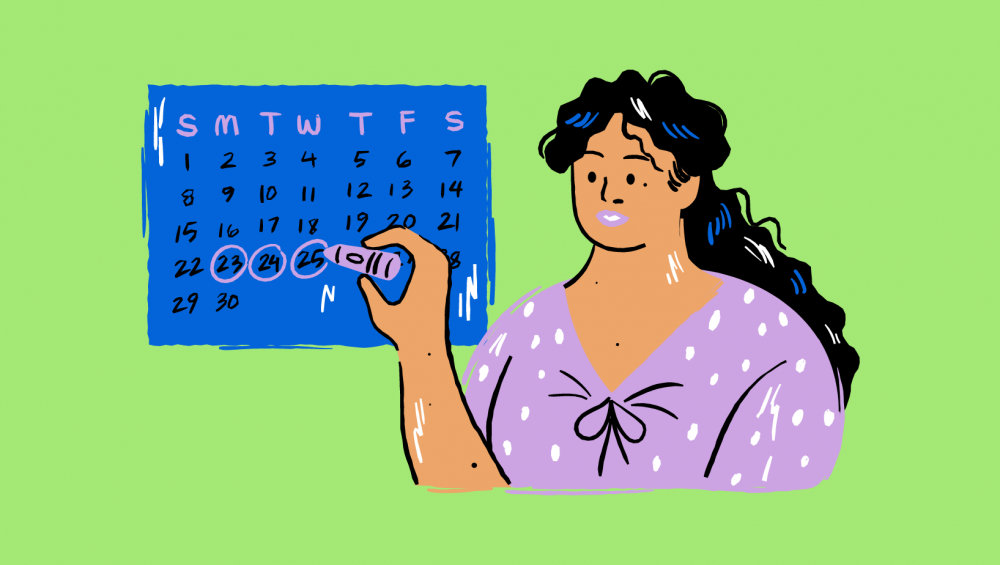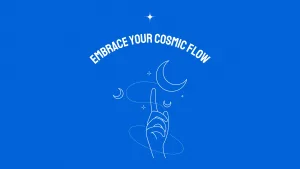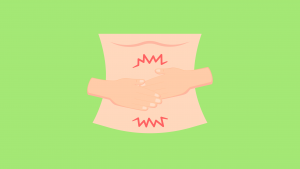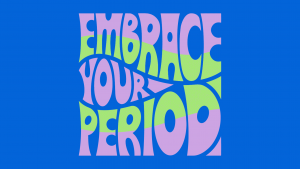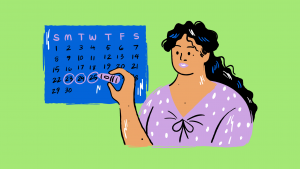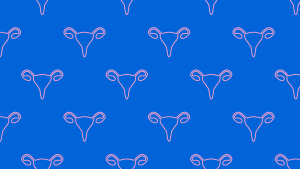The Menstrual cycle can be broken down into 4 main phases. The cycle itself usually lasts a total of 28 days, with each phase taking place throughout this cycle.
The Menstrual Phase
First up, the menstrual phase. This is when you get your period. This phase starts when an egg from your previous cycle hasn’t been fertilised. Levels of the hormones estrogen and progesterone drop.
Periods are caused by the lining of your womb shedding out through your vagina. A period is a combination of blood, mucus, and tissue from your uterus.
How does this affect you?
Symptoms include cramps, bloating, irritability, headaches, tiredness, mood swings, and lower back pain.
The Follicular Phase
This phase starts on the first day of your period, think of this phase and the menstrual phase as besties. The Follicular stage ends when you ovulate.
During this phase the hypothalamus sends a signal to your pituitary gland to release follicle-stimulating hormone. This hormone stimulates your ovaries to produce around 5 to 20 small sacs called follicles. Each follicle contains an immature egg. The maturing follicle sets off a surge in estrogen that thickens the lining of your uterus. The average follicular phase lasts for about 16 days. It can range from 11 to 27 days, depending on your cycle.
How does this affect you?
During this phase you might notice you have more energy, your skin might have an extra glow, and your sex drive might be a little higher. You’ll probably feel more optimistic & sociable during this phase.
The Ovulation Phase
This is your most fertile time of the month. The ovulation phase usually begins around 2 weeks before your next period. This phase is triggered by your pituitary gland to release luteinizing hormone (LH). Ovulation occurs by a mature egg being released and travelling down the Fallopian tube towards the uterus.
How does this affect you?
Due to the reproductive hormones, you might be feeling extra flirty during this phase. You’ll also be feeling more confident and outgoing.
The Luteal Phase
This is the phase in which your body is starting to prepare for a new cycle. The hormones progesterone and some oestrogen rise during this phase keeping your uterine lining thick. If there is no fertilised egg levels of oestrogen and progesterone will drop. This is when you’ll get your period.
Your energy levels will be quite low during this phase as your body prepares for a new cycle.
How does this affect you?
This phase is also when premenstrual symptoms (PMS) will appear.
Did you know the 4 phases of your menstrual cycle?

